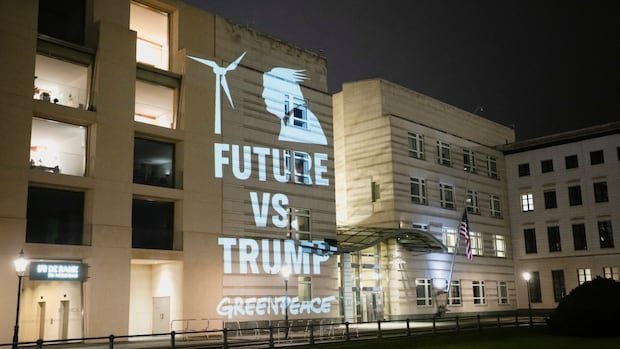Most countries worldwide have failed to meet a set UN deadline for establishing new climate objectives as initiatives to reduce global warming face challenges post the election of U.S. President Donald Trump. The UN remains optimistic that these targets will be set within this year. By the February 10 deadline, only 10 out of the 195 countries committed to the Paris Agreement had presented their revised plans detailing how they intend to reduce emissions by 2035.
Canada has not yet submitted its proposal, although Environment Minister Steven Guilbeault unveiled a new target for emissions reduction by 2035 last year. The minister’s office informed CBC News of its intentions to submit the target to the UN later this week.
The delays have sparked concerns about the direction of international diplomacy, especially with expectations of reduced climate action from the U.S. as Trump withdraws from the Paris Agreement and aligns his administration with pro-fossil fuel interests. Former U.S. President Joe Biden had submitted a new U.S. climate target in the final days of his term, but it is anticipated that Trump will discard this plan.
China, now the largest polluter globally, the European Union, and India missed the deadline for submitting new plans. Alex Rafalowicz, the executive director of the Fossil Fuel Non-proliferation Treaty Initiative, stressed the importance of timely submissions by September to allow the UN to evaluate the plans for increased ambition, which will impact negotiations at the global climate conference in Brazil in November.
The primary objective of mandating new targets every five years is to push countries gradually towards heightened climate ambition as renewable energy sources become more affordable, green alternatives like electric vehicles improve, and investments in clean technologies expand. The Paris climate accord of 2015 aims to limit global warming to 1.5°C above pre-industrial levels. While current actions fall short of the necessary emissions reductions, significant progress has been made since the agreement’s inception.
The missed deadline underscores concerns that climate action is losing priority on government agendas. UN climate chief Simon Stiell stated that most countries have committed to submitting their plans this year, emphasizing the critical role these plans will play in securing government investments in clean energy and infrastructure.
Among the countries with new plans are the U.K. and Brazil, with the latter hosting this year’s COP30 climate summit in the Amazon rainforest. Japan and Canada have announced plans but are yet to submit them. The U.K.’s ambitious plan aims at rapid emissions reductions to achieve net-zero emissions by 2035.
While the European Union’s policymaking cycle does not align with the UN deadline, EU climate policy chief Wopke Hoekstra assured readiness for the COP30 UN climate summit in November. India is still conducting the necessary studies to develop its climate plan, while China and Indonesia are awaiting instructions to submit their climate targets.
The delay in submitting new climate targets highlights concerns about the global commitment to climate action and the urgency of addressing climate change on a global scale.


